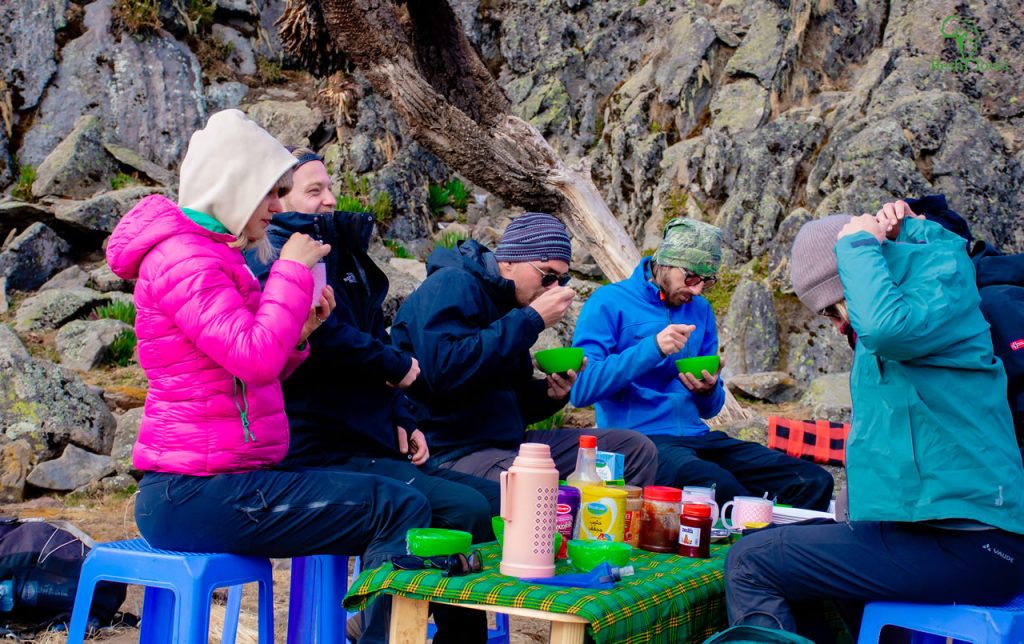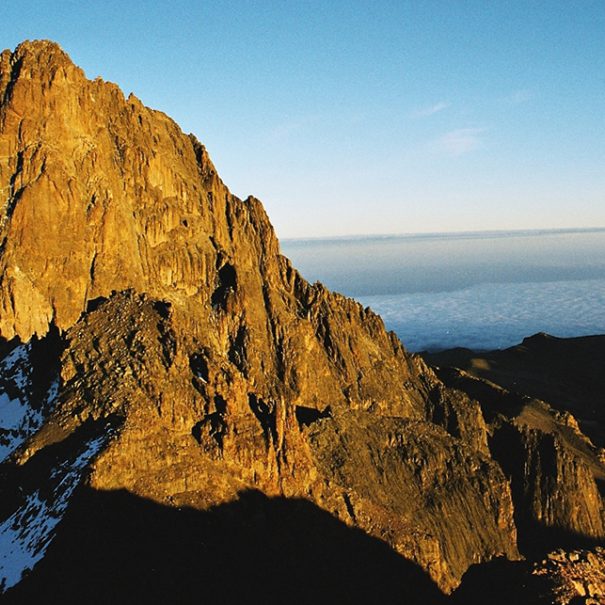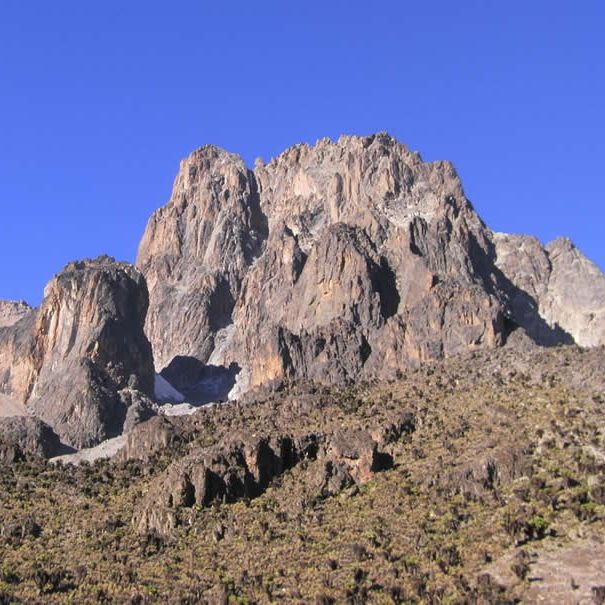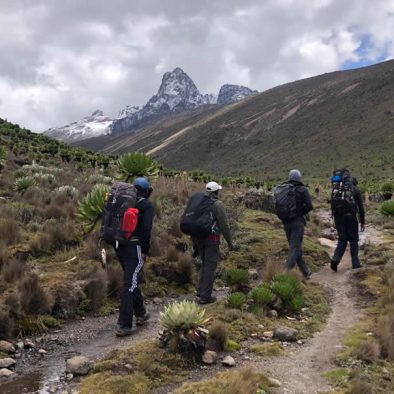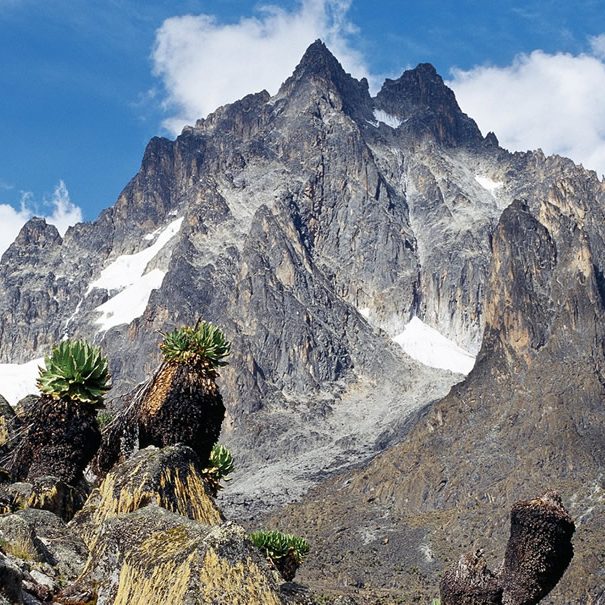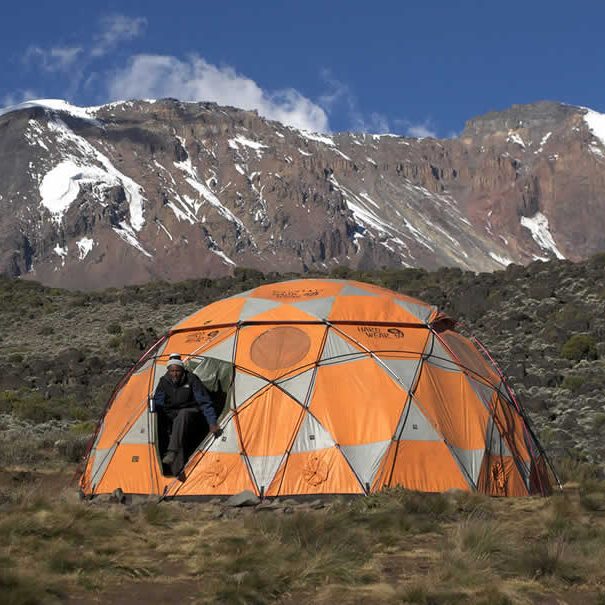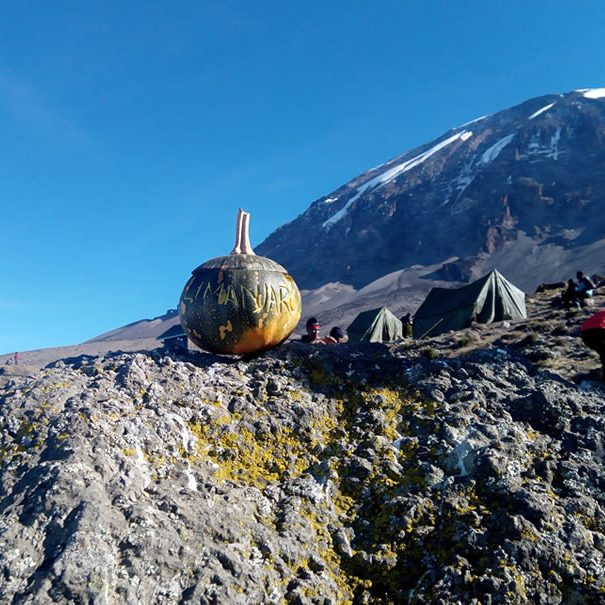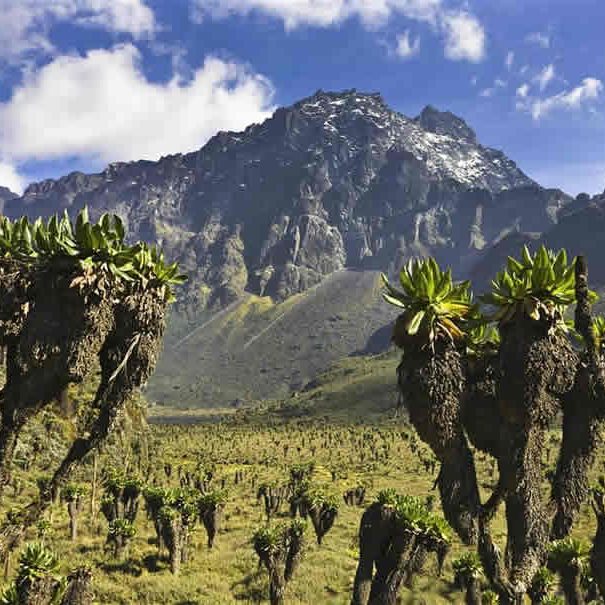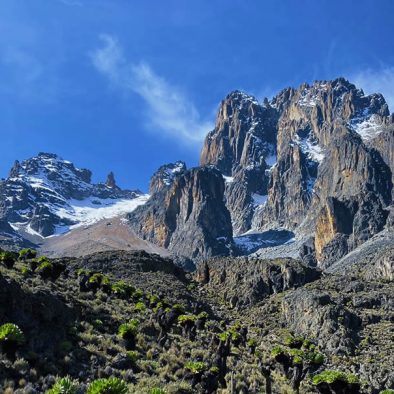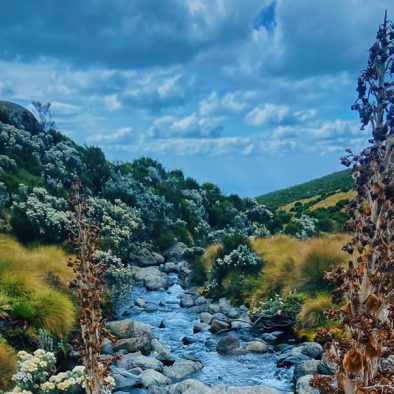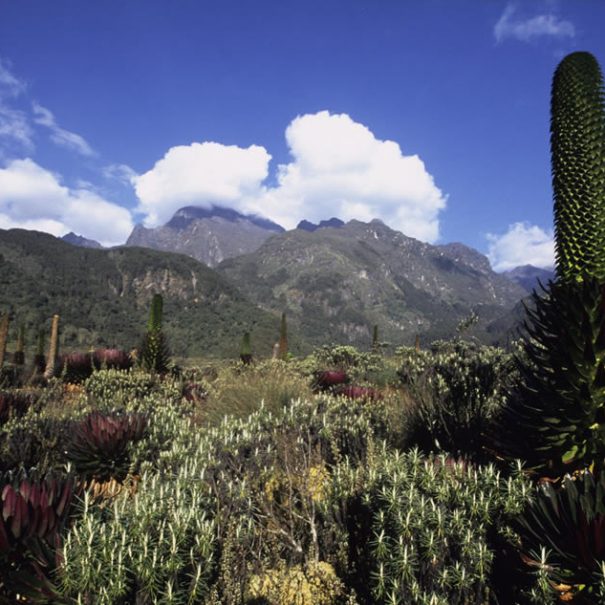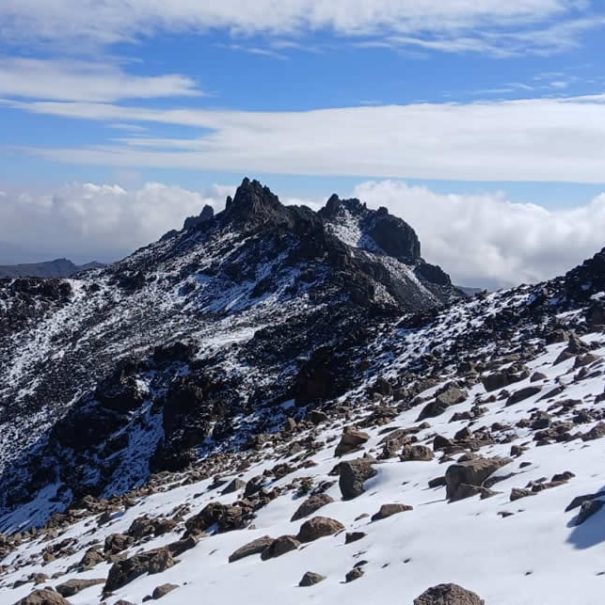Embarking on the challenging ascent of Mount Kenya is not merely an adventure; it’s a test of endurance, determination, and resilience. As you lace up your hiking boots and prepare for the exhilarating journey ahead, remember that success on the mountain’s peaks is not solely determined by physical strength. Proper nutrition plays an integral role in your triumph over altitude, rugged terrain, and unpredictable weather. In this exploration of the meals and snacks to fuel your Mount Kenya climb, we delve into the significance of nourishment during a Mount Kenya climb.
The Science Behind High-Altitude Nutrition
As the air becomes thinner and the landscape grows more majestic with each step towards higher altitudes, your body undergoes a series of physiological changes that demand meticulous attention to your nutritional intake. At these lofty heights, the body’s oxygen availability decreases, triggering a cascade of effects on metabolism and energy production. This shift in altitude necessitates a recalibration of your dietary approach, as the body’s nutritional needs are distinctly impacted
One of the foremost challenges that climbers face at higher elevations is the subtle yet persistent decline in appetite. This decrease in hunger can be attributed to a blend of factors including the body’s redirection of blood flow away from the digestive system in favor of supplying oxygen to vital organs. Consequently, a diminished desire to eat can lead to inadequate calorie consumption, potentially compromising the body’s fuel reserves. Simultaneously, the rigors of climbing, coupled with the cold climate, elevate calorie expenditure substantially, adding to the nutritional conundrum.
Balanced nutrition takes center stage in combating these altitude-induced hurdles. Incorporating a well-rounded blend of macronutrients – carbohydrates, proteins, and fats – is vital for sustaining energy levels throughout the climb. Carbohydrates serve as the body’s primary energy source and are especially critical in countering the heightened demand for fuel. Proteins play a pivotal role in muscle repair and recovery, addressing the wear and tear inflicted by arduous treks. Healthy fats, meanwhile, provide long-lasting energy and aid in maintaining core body temperature.
In essence, understanding the nuances of high-altitude nutrition is akin to deciphering the mountain’s unspoken language. By adapting your diet to accommodate decreased appetite and heightened energy requirements, you embark on a journey not only equipped with physical strength but armed with the power of nourishment.
Preparation and Planning
Before embarking on your journey to the majestic heights of Mount Kenya, a crucial phase awaits – preparation and planning. The significance of pre-climb meal planning cannot be emphasized enough. Crafting a strategic nutritional strategy ensures that your body is in optimal condition for the challenges that lie ahead. As you gear up for your adventure, keep in mind the importance of meals and snacks that will fuel your Mount Kenya climb.
· Breakfast: A Strong Start
Picture breakfast as the dawn of your adventure – a sunrise feast that kickstarts your body’s engines. A hearty breakfast isn’t just a meal; it’s a promise of energy and vitality for the day ahead. Opt for energy-boosting foods like oats, eggs, and fruits. Oats provide complex carbohydrates for sustained energy release, while eggs contribute a protein punch that fuels your muscles. Fruits infuse your body with essential vitamins and natural sugars for healthy vigor. And remember, easy-to-digest options like yogurt and smoothies are your allies, ensuring swift nutrient absorption as you ascend.
· Lunch: Refueling and Rehydration
Amidst the breathtaking vistas and thin air, hydration becomes a steadfast ally. Balanced lunch options, like whole-grain sandwiches and salads, offer a synergy of nutrition and hydration. Whole grains provide a slow release of energy, countering the peaks and valleys of exertion. The vibrant medley of vegetables in salads replenishes essential vitamins and minerals while maintaining hydration. As you refuel your body, keep in mind the importance of meals and snacks that fuel your Mount Kenya climb.
· On-the-Go Snacks: Keeping Energized
Between the rhythmic strides and breathtaking panoramas, the need for on-the-go sustenance arises. Portable snacks become your secret weapon, ensuring that energy levels remain steadfast. Trail mix, energy bars, and dried fruits stand ready as convenient companions. However, moderation is key. Portion control maintains a delicate equilibrium – ensuring energy without overburdening your body. So, as you marvel at the landscapes that unfold, remember the snacks that empower your Mount Kenya conquest.
· Dinner: Recovery and Restoration
As the sun dips below the horizon, dinner takes on a dual role – recovery and restoration. After a day of challenges and triumphs, your muscles crave repair. Enter protein-rich meals like grilled chicken and quinoa. The proteins aid in muscle regeneration, fortifying you for the next day’s endeavors. The balance of nutrients in such meals orchestrates an overnight recovery ballet.
· Hydration Strategies
Staying hydrated during your Mount Kenya climb is not just a recommendation; it’s an essential component of your journey’s success. The higher altitudes and demanding terrain increase fluid loss through respiration and perspiration, making hydration a priority. To ensure you maintain proper hydration levels, drink small sips of water frequently throughout the day rather than consuming large quantities at once. Carry a reusable water bottle and pay attention to your body’s cues for thirst. Hydration doesn’t stop at water – electrolyte-rich beverages and hydrating foods also play a crucial role in keeping your body balanced and ready to conquer the peaks.
Special Considerations: Altitude Sickness and Nutrition
Altitude sickness can cast a shadow over even the most well-prepared climbers. One of its manifestations is a decline in appetite and digestion, which can threaten your body’s fuel supply. Combat this challenge by focusing on light, easily digestible meals that offer a blend of complex carbohydrates and moderate protein. Ginger-based foods and herbal teas are known to alleviate nausea, helping you navigate altitude-induced discomfort. Electrolyte imbalances are also a concern at higher elevations, so prioritize foods rich in potassium, magnesium, and sodium to counteract these effects.
Post-Climb Nutrition: Replenishing and Repairing
The completion of your Mount Kenya ascent marks the start of a new phase – recovery. Proper post-climb nutrition is your key to replenishing energy stores and repairing muscles that have endured the challenges of the climb. Carbohydrates take center stage, replenishing glycogen stores in muscles, while proteins aid in muscle repair and growth. Hydration remains paramount even after the climb – continue consuming water, electrolyte-rich beverages, and foods to restore your body’s balance. Remember, recovery is an ongoing process, and a strategic approach to meals and snacks ensures your body emerges stronger and more resilient than before.
Conclusion
High-altitude nutrition is an art that intertwines with the spirit of exploration and adventure. From meticulously planned pre-climb meals to the careful selection of on-the-go snacks, every aspect of your diet plays a role in conquering Mount Kenya. As you stand atop its peaks, the realization dawns that your journey was powered not just by physical prowess, but by the wisdom of nutrition. So, whether it’s the hearty breakfasts, rehydrating sips, or post-climb replenishments, the significance of proper meals and snacks during your journey becomes evident – each bite a testament to your triumph, reinforcing the mantra that indeed, it’s the right meals and snacks that fuel your Mount Kenya climb.

